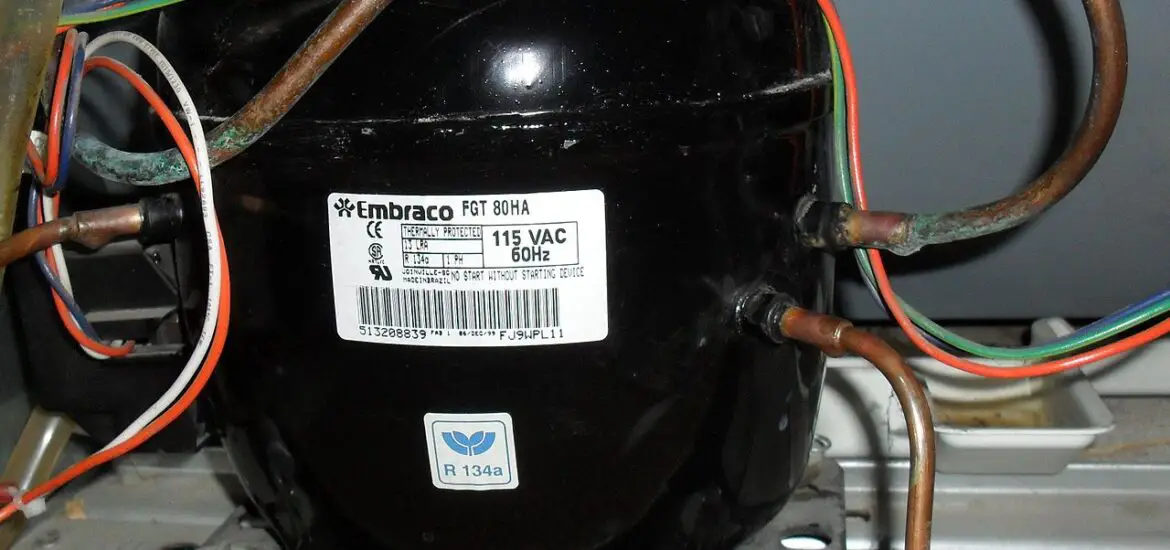Are refrigerator compressors interchangeable? It’s a common question many fridge owners ask, and here’s the short answer: It depends. Numerous factors influence whether you can swap one compressor for another. But don’t worry, we’re going to unpack this in detail so you get the full picture.

Table of Contents
Understanding Refrigerator Compressors
The refrigerator compressor is the centerpiece of your fridge’s cooling system, often working tirelessly to ensure your food stays chilled. But, it’s not a one-size-fits-all component. Different compressors come with unique specifications and operations, making understanding them the first step toward determining their interchangeability.
What is a Refrigerator Compressor?
Picture the refrigerator compressor as the heart of your fridge. It’s what keeps it alive and cool, literally. By compressing refrigerant gas, it generates the chill that makes your refrigerator a haven for food and drinks. It’s a hard worker, always humming behind the scenes to keep your groceries fresh.
Types of Refrigerator Compressors
Did you know there are different types of compressors? That’s right! There’s the piston (or reciprocating) compressor, the rotary compressor, and the scroll compressor. Each type has its own unique method of compressing the refrigerant, and understanding these differences is key to knowing if you can play the swap game.
How a Refrigerator Compressor Works
So, how does this magical chill-maker work? Well, it starts with the compressor drawing in the refrigerant gas. This gas is then compressed, increasing its temperature and pressure. The hot, high-pressure gas is then released into the condenser coils where it loses heat and becomes a liquid. It’s a cycle that keeps your fridge cold and your ice cream frozen.
The Interchangeability of Refrigerator Compressors
Replacing your refrigerator’s compressor isn’t as simple as swapping out a light bulb. There’s a myriad of factors that determine if one compressor can serve as a substitute for another. From size and capacity to the technology used, and even legal considerations, it’s a complex topic that needs thorough exploration.
Factors Influencing Compressor Interchangeability
Let’s take a look at these factors, shall we?
Compressor Size and Capacity
Size matters when it comes to compressors. A big fridge needs a powerful compressor, and a mini fridge needs a smaller one. You can’t just stick a small compressor in a large fridge and expect it to work. It’s like expecting a small car engine to power a huge truck. It just won’t cut it.
Refrigerator Brand and Model
Think of brands and models as different languages. A Samsung compressor might not “speak” the same language as a Whirlpool refrigerator. And even within the same brand, different models can have different requirements. It’s not a hard and fast rule, but it’s definitely something to keep in mind.
Compressor Technology
The type of technology used in the compressor can also affect its interchangeability. For instance, a compressor designed for a refrigerator with a digital inverter might not be compatible with a refrigerator that doesn’t have one. It’s like trying to play a Blu-Ray disc on a DVD player. You get the picture, right?
Risks and Challenges of Interchanging Refrigerator Compressors
While it may be tempting to interchange compressors, there are risks involved. Like swapping the engines of two different car models, it might cause more harm than good. You risk damaging your fridge, voiding your warranty, and even creating potential safety hazards. Is it really worth it?
Legal and Warranty Implications of Compressor Interchangeability
It’s not just about the technical side of things. Interchanging compressors can also have legal and warranty implications. Many manufacturers stipulate in their warranty terms that modifications or repairs must be carried out using approved parts and by certified professionals. If you decide to play Dr. Frankenstein with your fridge, you might just void your warranty.
Check out these other related articles…
Does a Compressor Fridge Need Ventilation? [Detailed Answer]
How to Start a Fridge Compressor: In 3 Easy Steps
How to Reset a Refrigerator Compressor: In 4 Easy Steps
Fridge Freezer Compressor Not Starting: 4 Proven Solutions
Water in Fridge Compressor: 3 Telltale Signs & Solutions
How to Wire a Fridge Compressor: In 4 Easy Steps
How to Find Low Side of Refrigerator Compressor: Quick Guide
How to Determine if a Compressor is Interchangeable
Finding out whether a compressor is a suitable replacement for your refrigerator’s original can feel like a puzzle. It requires a careful examination of specifications, consultation with professionals, and a deep understanding of brand-specific guidelines. Let’s delve into how to navigate this process.
Checking Compressor Specifications
How do you know if a compressor is a match? Check its specs. It’s like looking for a date on an online dating app. You compare interests, goals, and compatibility. In the case of compressors, you’d compare things like size, capacity, power requirements, and the type of refrigerant used.
Consulting with Professionals
When in doubt, ask a pro. A professional technician can tell you if a compressor is compatible with your refrigerator. They have the knowledge, the tools, and the experience. It’s like asking a seasoned chef for cooking advice. They just know their stuff.
Understanding Brand-Specific Guidelines
Manufacturers often provide guidelines on parts replacement. It’s like a roadmap, guiding you on what parts are compatible with your fridge. Ignoring these guidelines can lead to a dead-end, so it’s best to follow them.
Conclusion
So, are refrigerator compressors interchangeable? It’s not a simple yes or no answer. It’s more like an “it depends”. It depends on the size, the type, the brand, and even the technology of the compressor. And remember, while it might seem like a fun DIY project, swapping compressors can have risks and legal implications. So, tread carefully, and when in doubt, always consult with a professional.